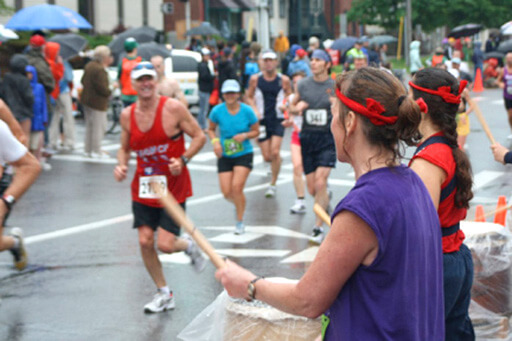Hi All,
I’m excited to be starting up this blog here at LearnScience.Academy. I’ve been writing science textbooks and teaching science over the past three decades. There’s a lot on my mind when it comes to science education. So where do I begin? That’s easy. If there were but one message I could give to students today it would be this: passion trumps aptitude every time.
Let me elaborate just a bit. This past weekend under warm spring skies I was walking with our dear friend Timothy and his 11 year old daughter to the Burlington marathon, where my wife was performing with her Taiko ensemble and I was about to run a leg of the marathon relay race (my full marathon days are a distant past). Timothy is a well-known musician and music teacher extraordinaire. On our way to the starting line I somehow began self-deprecating my own musical abilities. “Look, John,” he said, “How can you expect to be an expert musician if you haven’t practiced like an expert musician? There’s nothing “natural” about being an expert musician. All expert musicians practice for hours on end, day after day.”
His daughter and I then listened to his story of two students he once had. One had clear innate musical talents, the other less so. The more talented student, however, was much less enthused about putting in the effort to improve. By contrast, the “less talented” student had the passion. He really wanted it. Guess which student moved forward into a successful career in music? Here’s a clue: passion trumps aptitude.
Bottom line: it’s wonderful to have some natural aptitude. But that really doesn’t make much of a difference. In fact, it can even serve as a handicap. A “special ability” to some one who has it, is anything but special. Instead, it’s perfectly normal—relative to that person. So special ability in and of itself is not a driving force for some one to pursue that ability. What counts most is passion. OK, so we might not all begin at the same starting line. Some of us might have a head start. But life is a long glorious run, like a marathon. If you want it, if you really do, then where you start makes no difference. You still have the edge when it comes to fulfilling your dreams.
Too often students think they don’t do well in science simply because they’re not “smart enough”. They’re flat wrong. The ideas of science are accessible to any healthy individual. The real question is: What is your level of interest? If our goal is to help students learn science, then clearly the path is through helping them to develop a passion. How do we do this? It comes first from understanding exactly what science is: A window to understanding this amazing universe in which we have the privilege to be alive. In my mind, turning students onto science is as simple as opening their eyes, ears and other senses to what is right there before us. My job is but to remove any blind folds, ear plugs, or whatever, so that the universe can speak for itself. What arrives is pure music.

